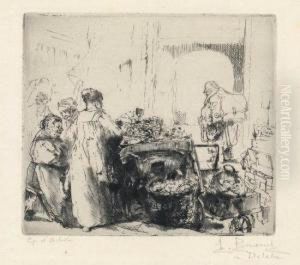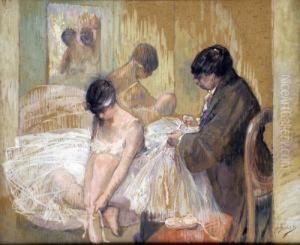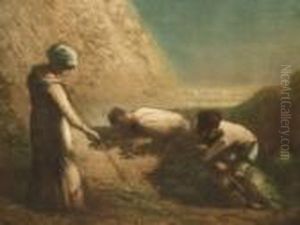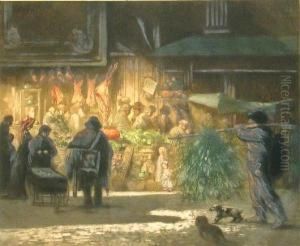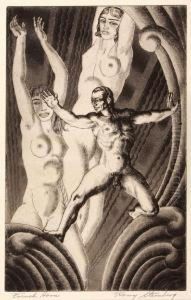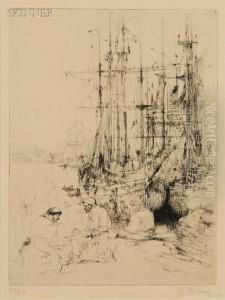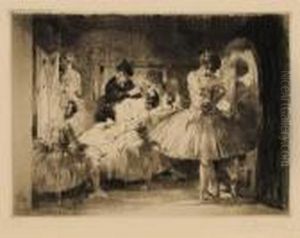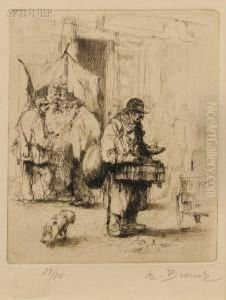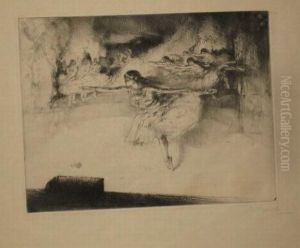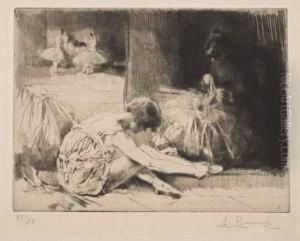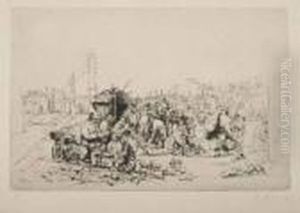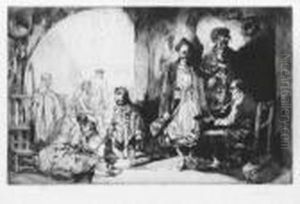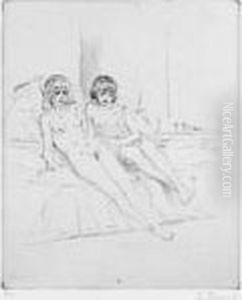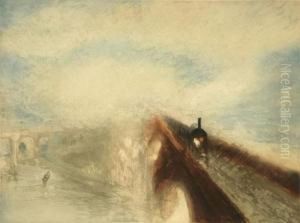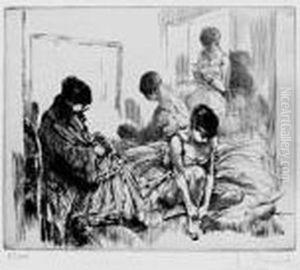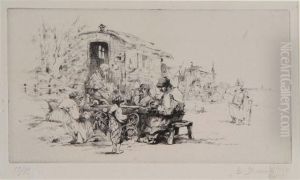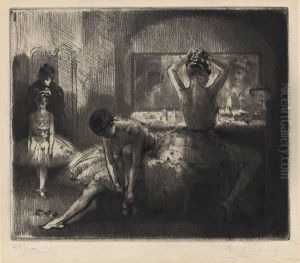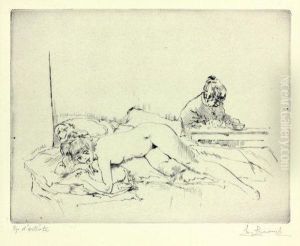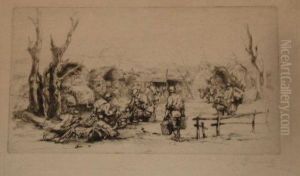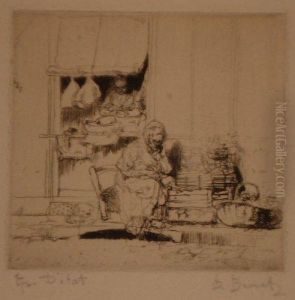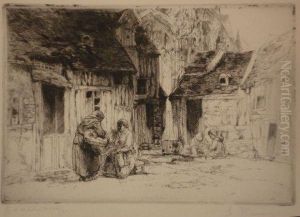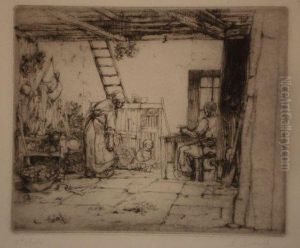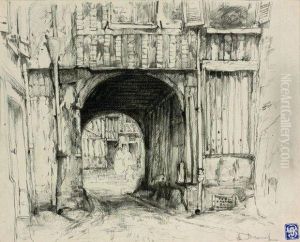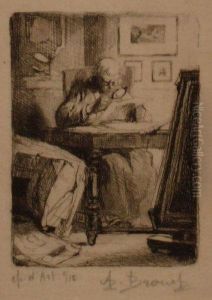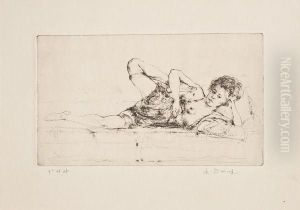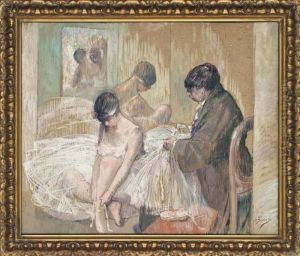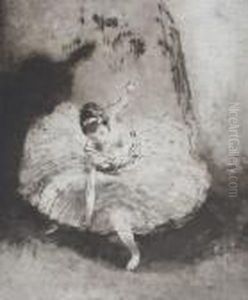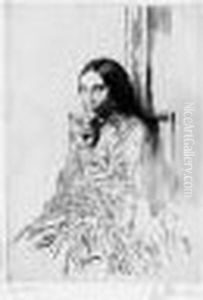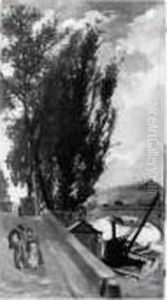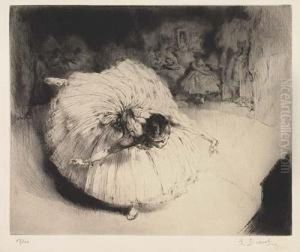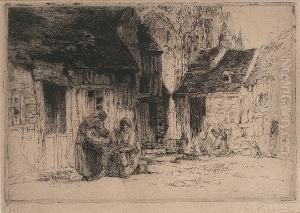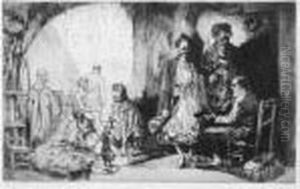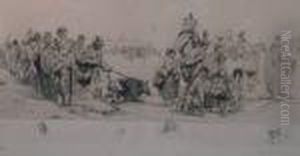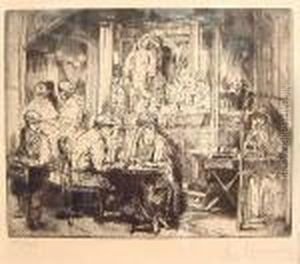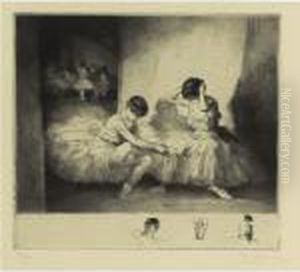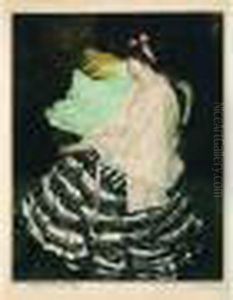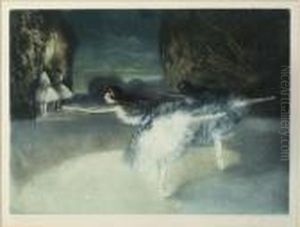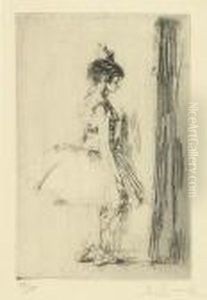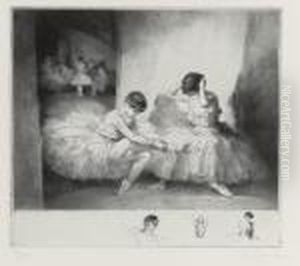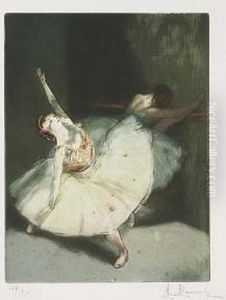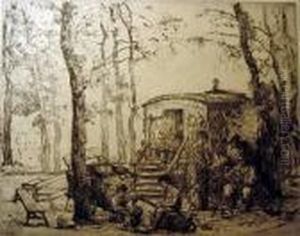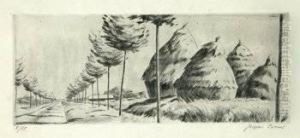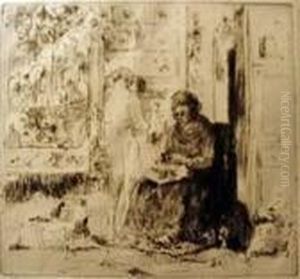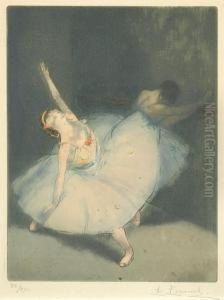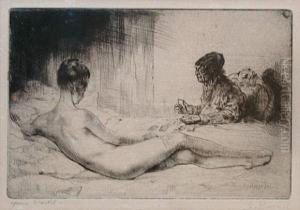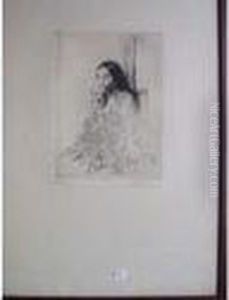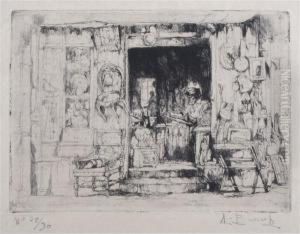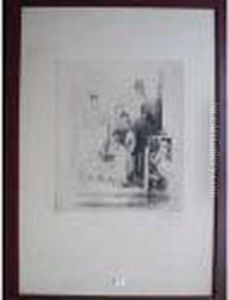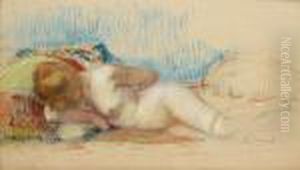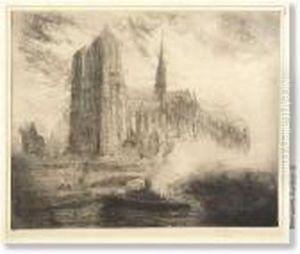Auguste Brouet Paintings
Auguste Brouet was a French artist, renowned for his etchings and lithographs, born on May 18, 1872, in Paris. He grew up in a working-class neighborhood, which would later influence the subjects of his artworks. His talent for drawing was evident from an early age, and he started his artistic training at the École des Beaux-Arts in Paris under the tutelage of Gustave Moreau, a significant figure in the Symbolist movement.
Brouet's early works were mainly illustrations for books and journals, but he eventually found his true calling in the art of etching. His etchings often depicted the bustling life of Paris, including the city's poorer quarters, its street vendors, and the bohemian lifestyle. He was particularly adept at capturing the humanity of his subjects, often portraying them with a sense of dignity and empathy.
Throughout his career, Brouet exhibited his work at various salons and galleries, gaining a modest level of success and recognition among art critics and collectors. His works are characterized by their fine detail, realistic portrayal, and the artist's ability to convey atmosphere and emotion. Despite his focus on the lives of the common people, Brouet's work was not overtly political; rather, it offered a documentary-like insight into the everyday struggles and joys of his subjects.
During World War I, Brouet served in the French army, and his experiences during the war influenced some of his later works. After the war, he continued to produce etchings and took part in several exhibitions. His contributions to the field of printmaking, especially etching, were significant and he was regarded as one of the leading etchers of his time.
Auguste Brouet passed away on May 1, 1941, in Paris. His works remain in various collections and museums, and he is remembered as an artist who provided an intimate look into the lives of Parisians during the late 19th and early 20th centuries. His legacy is preserved through his etchings, which continue to be admired for their technical skill and compassionate portrayal of his subjects.
